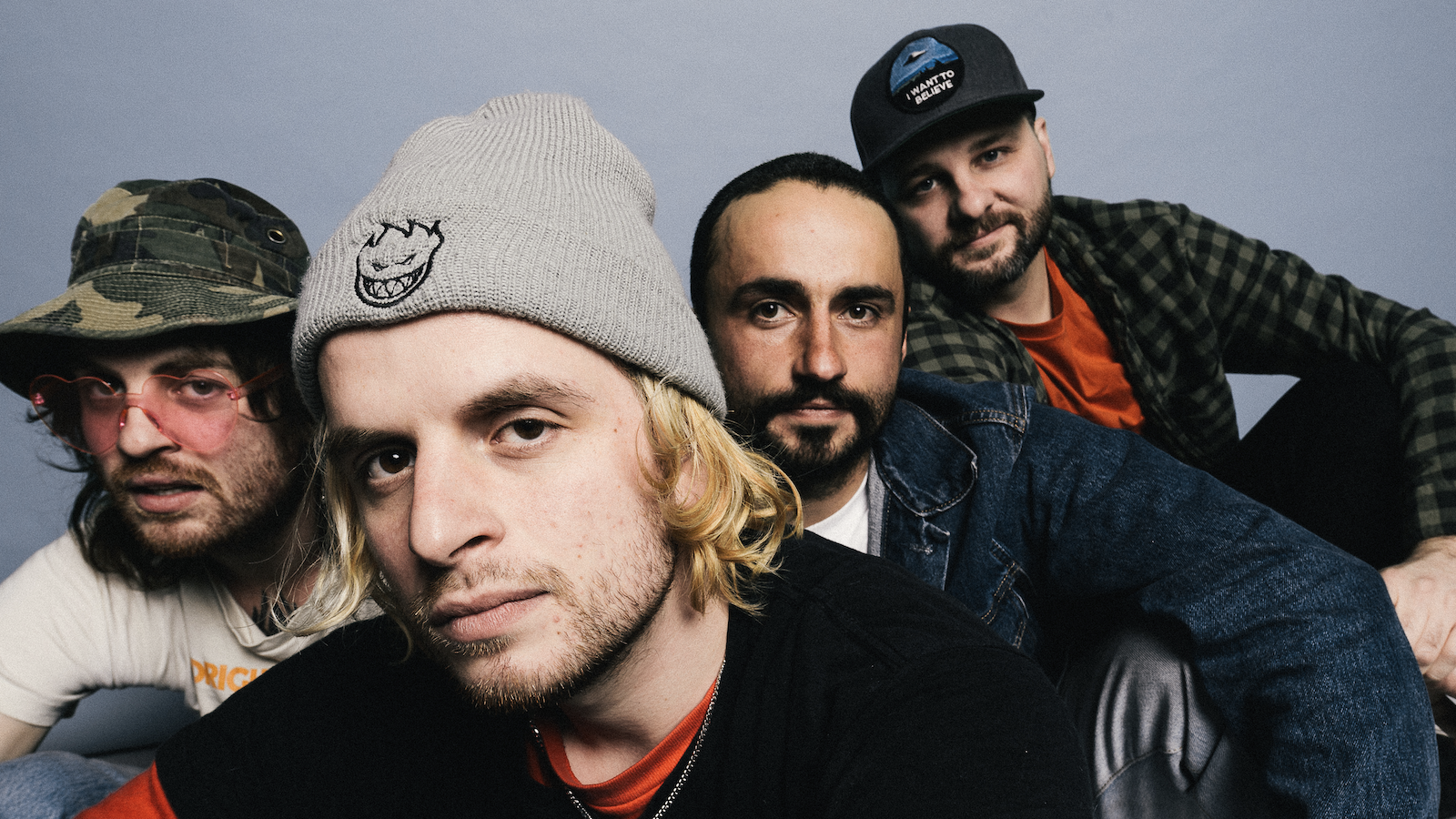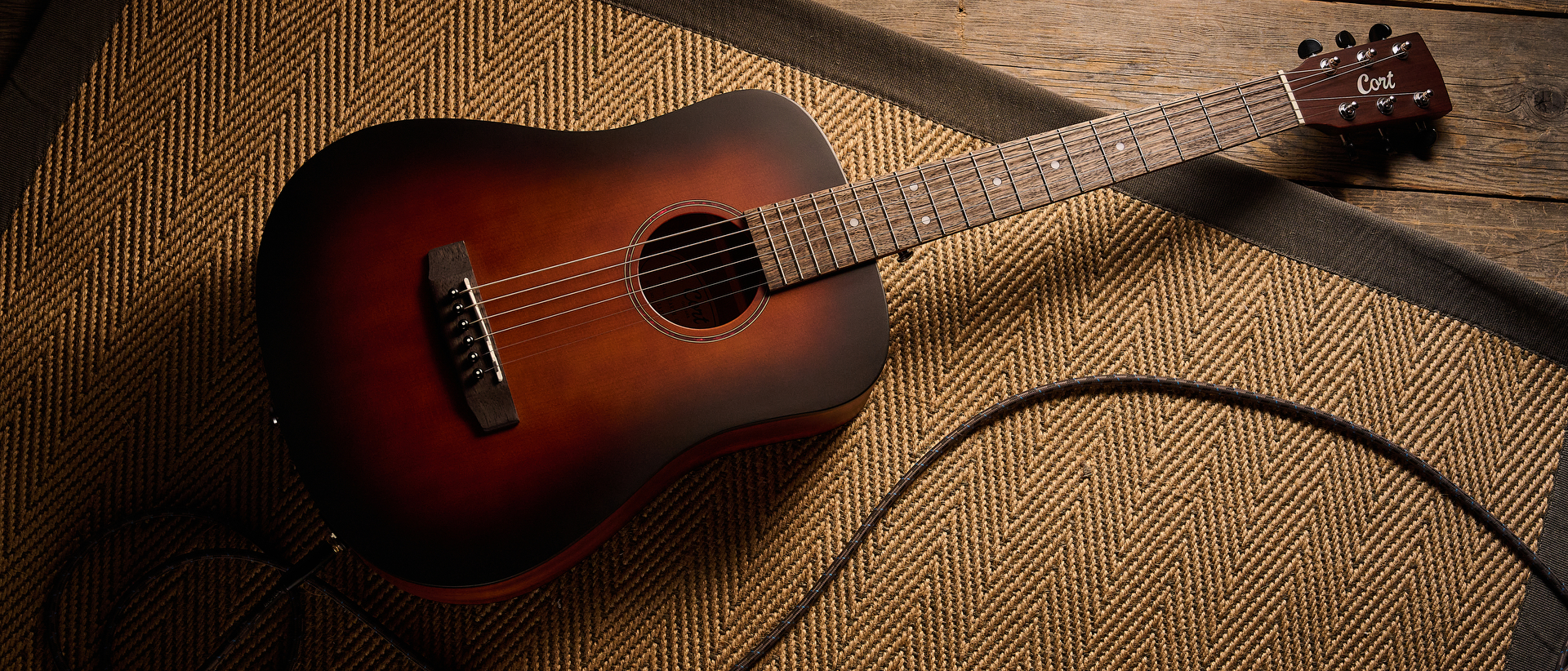Loser’s Tim and Will Maxwell: “We were brought up on blues, but I always leant towards more of your Gary Moore sort of shred”
The alt-rock luminaries in Loser are back with another slab of scintillating shred and nostalgic noise. We decipher it all with axemen Tim and Will Maxwell

All the latest guitar news, interviews, lessons, reviews, deals and more, direct to your inbox!
You are now subscribed
Your newsletter sign-up was successful
Second albums have a tendency to make or break bands. Oftentimes, an outfit’s sophomore effort will be the record that really galvanises their chemistry, with amplified energy and calculated confidence. But sometimes it can be the record that totally derails what structure that outfit had, proving either that their first album was a fluke, or that their confidence after a successful debut grew a little too unwieldy. Loser, thankfully, fit much more into the first category than the second.
Speaking with frontman Tim Maxwell, the Melbournite’s confidence is not misplaced – he’s a bloody great songwriter (and an even better performer), and he certainly knows it. He and brother Will have been shredding together their whole lives, but it wasn’t until the mid-2010s that they finally joined forces in an actual band. That was the now-defunct Apart From This, wherein many of the seeds that bloomed into Loser were planted. In their new band, Tim and Will’s individual artistries meld like peanut butter and chocolate – they’re complimentary enough to always make an unquestionable pair, yet contrastive enough to always be interesting. And so on Loser’s second album, All The Rage, Tim and Will have finally cracked the code to what makes their yin-and-yang guitarmanship really click.
With All The Rage out in the world – and racking up some well-earned critical acclaim – we sat down with the brothers to chat about how they made the album come to life.
I am absolutely dying to hear these songs live. Did you have the live show in mind with All The Rage?
Tim: Nah, man. With Mindless Joy, it was like, “Alright, we’ll have one guitar in the centre and two on the sides,” and we’d allocate it so that Will would do one side and Cutter [Jake Farrugia] – who now drums in the band, but used to play guitar – would do the other. And y’know, Will and I have been playing for our whole lives, and Cutter just sort of jumped on, we’d make him play some powerchords and do all of that stuff.
At that point, it was like, “Oh, this is meant to sound huge, so we’ve got to make it sound how it would live.” Whereas with this one, it was all just about layering in the production, and it wasn’t all about going, “Okay, how is this going to translate live?” Like, there’s f***ing organs in “Don’t Leave Me”. There’s Mellotrons in “Time Won’t Wait”. There’s all this stuff that we’ll probably do live eventually, but for now it was all just from a production standpoint.
So when you play the record live, do you reckon it will take on a different vibe?
Will: I think it will, because Tim’s been using a Line 6 Helix, and I’ve recently bought one myself – I bought a smaller version of it – but that’s where all the tones come from on All The Rage. And with my playing, live, I’ve never used that many effects. I mean, I use a few guitar pedals here and there, but with this it’s like, focusing on getting heaps of different tones, and then layering those tones. So live, it’s definitely going to be a bigger sound overall, and we’re going to be using more guitar amps.
All the latest guitar news, interviews, lessons, reviews, deals and more, direct to your inbox!
Tim: I I really wouldn’t want to play something like “Time Won’t Wait” unless we had, like, one of my mates playing acoustic, and there were some keys and shit – y’know what I mean? It’s just like, it feels like it has to sound right. There were a lot of songs from Mindless Joy that we only played once – it was just me singing with the acoustic, and that made it ten times better because it actually sounded like the song.
I hate when things don’t sound anywhere near the record. Like, there’ll be a part where it’s like, “Oh f***, we can’t do that guitar harmony,” and that’s like, “Well, fair enough.” But when there’s keys and Mellotrons and all that stuff, we don’t necessarily want to play to backing tracks, so we’ll save those songs until they can be done right.
There are some absolutely ripping solos on this record too, like “Upside Down”, “Don’t Leave Me”, that giant payoff in “Time Won’t Wait”… What is that makes the solo such an integral part of the track?
Tim: The thing with guitar solos is that [a song] has really gotta call for a guitar solo, y’know? Just because we can play well, doesn’t mean we have to be shredding all over it. Like on “Don’t Leave Me”, I’m literally just doing a Green Day run, playing along to the vocal melody. And some songs call for that. Whereas with a song like “Meant To Be”, it’s more like, “Alright, this has to be our ‘November Rain’ solo.”
But even then, it’s not like we were playing to our full ability – at all. It’s still pushed back. Because [a guitar solo] doesn’t always need to be technically overbearing. Craig [Selak, bass] has gotten me to do some real shreddy stuff before, and I’m just like, “F*** yeah, that’s sick... But it doesn’t suit the song.” And when you hear a solo that doesn’t suit a song, it just sounds awful.
So what is the dynamic between yourself and Will when it comes to your playing styles?
Tim: It’s probably taken us this long to be somewhat happy working together. I have these funny-as memories of our dad being like, “No, you have to use this kit, you have to use the Peavy and Metal Tone!” He’d just be like, “Now it’s Tim solo! Now it’s Will’s solo!” We just always wanted to solo over each other.
Will: We’re both very different guitarists when it comes to playing.
Tim: Yeah. Will’s very bluesy. We were brought up on blues, but I always leant towards more of your Gary Moore sort of shred. I mean, I love Stevie Ray Vaughan and all of those guys, because that’s what we were brought up on, but Will’s got that in his blood. I studied metal when he was picking up chicks.
I think one thing that really stands out on this record is the way both your playing styles weave together – it’s almost as if your parts bounce off of each other. Do you reckon part of that comes down to your upbringing?
Will: 100 percent, man. The cool thing with All The Rage is that Tim wrote a lot of the solos and the structures of the songs, but he trusted me to have my own style. Y’know, I might bend something or play something really loud, and I was able to do that when it suited the song. But definitely, even though we’re both very different guitar players, it still works. And it works because I’m doing something that Tim’s not doing, and it’s adding a little bit of that extra flavour to the song.
Tim: I’m an asshole when it comes to something that’s already written. He could be doing his own thing over a part, and it might be a bit shreddier, and I’m just like, “But it calls for f***ing powerchords! It calls for this boring octave riff!” It’s just the way it is, y’know what I mean? I write a lot of it by myself and then show the band, and then we sort of just weave in and out.
Will: On that track “Scarlet”, it’s about aliens so at the end, we had a pitch shifter on it to make it sounds like a UFO taking off. That was fun. That was very Pumpkins-influenced, James Iha sort of shit.

Ellie Robinson is an Australian writer, editor and dog enthusiast with a keen ear for pop-rock and a keen tongue for actual Pop Rocks. Her bylines include music rag staples like NME, BLUNT, Mixdown and, of course, Australian Guitar (where she also serves as Editor-at-Large), but also less expected fare like TV Soap and Snowboarding Australia. Her go-to guitar is a Fender Player Tele, which, controversially, she only picked up after she'd joined the team at Australian Guitar. Before then, Ellie was a keyboardist – thankfully, the AG crew helped her see the light…
